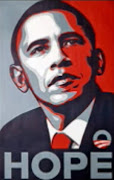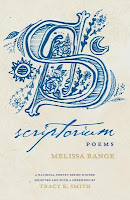Book Review: In the Days of Rain: A Daughter, a Father, a Cult by Rebecca Stott
I read this book three times in two weeks. I seldom reread a book inside of a year. So that should say something about its quality even if personal motives played a role. Which they did.
Before I proceed I must correct the record of my three readings in my Goodreads review. I'd registered the book as 'reading' the day I started the second read and forgot so tried to fit the three reads between April 17 and 28 tho a closer look would have revealed that was less than ten days when I knew it had been two weeks on the 27th the day before the thon. The correct dates are:
- First read: April 13-16 listening at normal speed for the full effect of Rebecca's voice. 5hrs Friday. 3hrs Saturday. 1.5hrs Monday
- Second read: April 17-24 listening with Mom at lunch 40 to 120 minutes at a time with a couple skipped days
- Third read: April 28 for the read-a-thon listening at 225% speed, start to finish in 4.5hr focusing on facts, keeping the emotional maelstrom at bay
I can't share my reaction to this book without sharing my own story as the two are entwined. I was raised in a splinter off a splinter of the original Brethren sect which imploded in my late 30s. I kept telling myself that one year and then five, one decade and now two should be plenty of time to get past the trauma and move on but I keep stepping in mental and emotional mine fields. Following Rebecca's story as she lived through similar experiences resonates so with me its as tho a church bell rings inside me vibrating my bones.
Bibliography, citations and notes were not part of the recording. If they exist I need to find a copy so I can follow her sources. I'd be grateful for leads to any material shedding light on the history of the Brethren sects (Exclusive, Plymouth etc) and their spread across N. America and the globe (It was news to me it went global) and John Darby, C. I. Schofield, or our founder, Nels Thompson. I'm also interested in anything regarding fundamentalism of any religion including scholarly studies, diaries and biographies of members and memoirs of escapees. And anything relating to the psychology of fundamentalism and the aftermath for escapees, including any online support groups for escapees.
This book fits three genre. It is biography when telling her father's story, memoir when telling her own story and history when she follows the family trees back to the founding of the Brethren. The history sections sound like a professor wrote it--which is so after all. The professor often seems in control of the father's story. But when her story and his story converge it becomes memoir and that's where her writing shines. The history sections can be pedantic but when it's personal her story is moving, at times poetic; wrenching and dark but with moments of laugh-out-loud humor and often glowing with the dawn of hope.
I craved the history as I knew little from before our founder split from a Texas Plymouth Brethren Assembly in the early 1900s. My mom was a toddler when her family joined in California in the 30s. My dad was in high school when his mom joined in Idaho in the early 50s. They met while the Longview, WA Meeting Hall was being built in the mid 50s. The Hall I attended Meetings and other functions in several times a week until age 21.
With Rebecca's relating of the early history I now have a good sense of what happened between the 1830 founding and when John Darby split the Plymouth Brethren off and left Britain to found dozens of Assemblies across Canada and America using the traveling tent revival meetings to seed them. I know only that much about the North America beginnings and wish to know more. Stott had little to say about it other than their leader J.T. Jr. actually lived in New York. If she explained how it came about their British Assembly was controlled by an American I missed it. Three times!
It was heartbreaking to hear of families fractured by Withdrawal from any who did not join, believe without doubt or obey the rules without fail, and the many suicides as a result. I witnessed similar splitting up of families. We called it Removal from Fellowship. After three generations families were so intermarried few escaped the trauma of separations. In the final implosion my Mom's twin sister's husband and my dad were on opposing sides and my Uncle kept their contacts rare and brief for the last decade of her sister's life. I forgive most offences easily but that one...
I never heard of suicides due to Removals but I was suicidal for over a year as a result of the events leading to my own repudiation of the Doctrine between 1992-4, involving witnessing the abuse of children and recognizing it for what it was--a direct result of belief in the doctrine of Original Sin. Watching an infant disciplined for crying, I said NO to any god who requires breaking a baby's will or use of corporeal discipline on a preverbal child.
My own father, who was the gentlest of men, spanked my buttocks and thighs black and blue one July 4th night when I stood in my crib screaming 'Boom. Boom. Mama' between wails for hours. I was 19mo. He 26yr. I have no memory of it. It's just a family story and Daddy's remorse was part of the story. I never experienced conscious trauma associated with it. But hearing of the time Rebecca's father beat her black and blue at age three because she would not stop crying on command triggered a series of flashbacks so intense it must mean the PTSD, quiescent so long I thought it conquered, has not released its grip. Maybe because I've self-isolated such that I get little exposure to the triggers. Or maybe unconscious memories still fester.
Rebecca relates incidences of physical abuse by the men against their children and wives. And mother's against their children. One of her grandmothers threw her daughter across the room, breaking her arm. The same grandmother who, epileptic and 'willfull' was committed to an asylum in Australia for over two decades. A practice not uncommon with men who couldn't control their wives. That was not done in our Assemblies. Thank God for that!
Imagine growing up without holiday or birthday celebrations, TV, radio, music other than hymns or classical, movies, parties, card games, county fairs, amusement parks, proms, carnivals, parades, make-up, dancing, comic books...that was my mom's upbringing and to some extent mine. Tho many strictures were relaxing as I entered school we knew not to flaunt it in front of those who still held to them. Enforcement for us was via mild to moderate shaming. For Rebecca's family it was all of that and more with enforcement akin to the Inquisition (including coerced confessions of imaginary sins) with emotional torment instead of the rack and shunning instead of immolation.
The strictures Rebecca lived with until age 7 were much more confining than ours. The list of don'ts was long for us but at least they didn't forbid the library. I can't imagine my childhood without the library. Rebecca lucked out when a teacher who didn't know her parents forbade it gave her a pass to the library when she finished worksheets well inside the allotted time. There she found hope and windows into other worlds than her own.
I highly recommend this book. Especially to anyone who escaped, knows someone who escaped, or knows someone in a fundamentalist sect/cult. Or anyone wishing to know what life without freedom looks and feels like--when every thought is dictated and every act is witnessed with judging eyes; when the judge lives inside you monitoring everything and finding it wanting. So what if it destroys self-worth. You are not supposed to have a self. Read more...





















